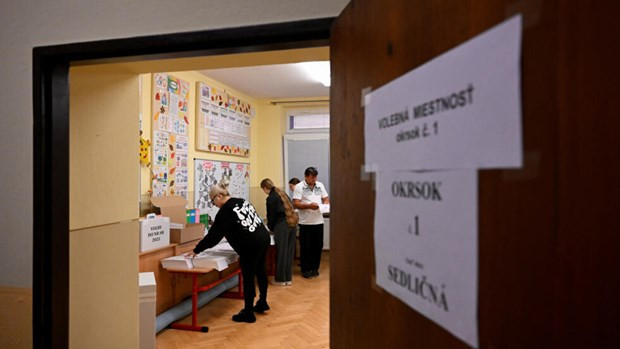Analysts say the election results and the formation of a new government in Slovakia will greatly affect the foreign policy of this Central European country with a population of 5.5 million.

On September 30, Slovakia held early elections for the State Council (Parliament).
Opinion polls show that the Social Democratic Party Smer (Smer-SD) of former Prime Minister Robert Fico and the Progressive Movement of Slovakia (PS) of Vice President of the European Parliament (EP) Michal Simecka are leading in voter support.
Analysts say the election results and the formation of a new government in Slovakia will greatly affect the foreign policy of this Central European country with a population of 5.5 million.
Polling stations in Slovakia open at 7am.
Some 4.3 million Slovak voters are eligible to vote to elect 150 deputies to the new parliament from among candidates from 25 political parties and coalitions.
According to poll results, up to nine political parties could win enough votes to be represented in the Slovak Parliament.
Under the country's law, to win a seat in the top legislature, a party needs at least 5% of the vote, while the minimum threshold for a coalition of two or three parties is 7%, and for a coalition of four parties is 10%.
In the latest polls, the support rate for Smer-SD is over 20%, while the rate for PS is between 15-18%.
In the most recent parliamentary elections in 2020, the OLaNO coalition won with 25% of the vote.
Ahead of the election, Slovakian media have urged voters to actively go to the polls. Slovakian newspaper Pravda commented that the people of this country are almost “disappointed” with the country’s political situation and are facing a dilemma in choosing between candidates.
According to the Slovakian Interior Ministry, a record number of nearly 59,000 voters cast their ballots by post from abroad, with the largest number coming from the neighboring Czech Republic with nearly 23,500 voters.
With no political party or coalition likely to win a majority, Slovakia will continue to have a coalition government after this election. PS President Simecka previously announced that he would not cooperate with former Prime Minister Fico's Smer-SD.
Polling stations in Slovakia are expected to close at 10:00 p.m. the same day and preliminary results will be announced later.
Independent political analyst Grigorij Meseznikov said the election will decide Slovakia's future in foreign policy, defense and security, as well as the future of democracy.
The Slovak parliament has called for early elections after Prime Minister Eduard Heger's government failed to survive a no-confidence vote in December 2022.
Slovakia's four-party coalition government has collapsed as the Freedom and Solidarity (SaS) party decided to quit.
Last May, Slovak President Zuzana Caputova decided to appoint economist Ludovit Odor as interim Prime Minister along with a cabinet of technocrats to run the government until general elections.
According to VNA